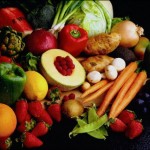Podcast 42: Will Immunity-Boosting Foods, Supplements and Super-dosing prevent COVID-19?
As we move through the rollercoaster ride of what’s been the last year and take
 Research has shown that nutrition can impact the development of cataracts and age-related macular degeneration (AMD). Through the administration of many studies, further backing up larger trials, results have shown that:
Research has shown that nutrition can impact the development of cataracts and age-related macular degeneration (AMD). Through the administration of many studies, further backing up larger trials, results have shown that:
→Recommended Dietary Allowance for Vitamin C = 90 mg for men and 75 mg for women.
So where can we find good sources of Vitamin C? Most fruits and vegetables contain a good source of Vitamin C such as: oranges, grapefruit, strawberries, papaya, tomato juice and broccoli
→Recommended Dietary Allowance for Vitamin E = 15 mg from natural sources; 30 mg from synthetic sources
Vitamin E is more difficult to find in food sources alone since it is found in very small quantities, however when trying to incorporate a little more, choose: vegetable oils, pecans, almonds, wheat germ or sunflower seeds
As we move through the rollercoaster ride of what’s been the last year and take
The uncertainty of COVID-19 has impacted everyone differently, but from a food security perspective, many